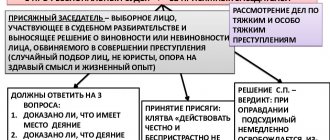In the media, we often come across situations where a person who has violated the law or is suspected of a criminal case, in order to avoid punishment, travels outside of Russia and lives quietly in one of the foreign countries. However, this is not a solution to the problem, since extradition is in force in many countries. This is, of course, a long and bureaucratic process, but it bears fruit. In this material we will try to understand what it means to extradite a suspect/accused of a crime.
The meaning of the term "extradition"
The concept of extradition implies the arrest of a suspect and his subsequent extradition to the authorities of the country that requires it. Moreover, it is worth noting that the arrested person does not necessarily have to have the citizenship of the country that requires his extradition. Another no more important circumstance is the individual consideration of each case.
Thus, to extradite means that one state extradites a person suspected of a crime to another state on the basis of a relevant international agreement and provided evidence of his guilt.
Of course, it is not always possible to achieve extradition; in most cases, the successful outcome of the case depends on the relationship between countries. If countries actively cooperate with each other in this matter, it is likely that the suspect will be extradited.
Dmitry Bezdelov (2016)
On April 5, 2021, the Italian authorities extradited to Russia the former head of the Federal Agency for the Development of the State Border (Rosgranitsa) Dmitry Bezdelov. On December 9, 2013, the Investigation Department of the Ministry of Internal Affairs of Russia issued a resolution to bring Bezdelov as a defendant under Part 4 of Art. 159 of the Criminal Code of the Russian Federation (“Fraud on an especially large scale”). According to the investigation, he organized the theft of budget funds in the amount of 490 million rubles (the amount was originally called 1 billion 176 million rubles), allocated for the reconstruction of a number of border crossing points. On October 26, 2014, Dmitry Bezdelov was detained by Italian police in Rome. On October 2, 2015, the Rome Court of Appeal granted the request of the Russian Prosecutor General's Office for his extradition to Russia. In addition to fraud, he was charged under Part 3 of Art. 210 (“Creation of a criminal community committed by a person using his official position”). In January 2021, criminal cases against Bezdelov and his alleged accomplices were combined into one proceeding. On December 29, 2021, the Meshchansky Court of Moscow found Dmitry Bezdelov guilty of fraud on an especially large scale and sentenced him to nine years in prison in a general regime colony. In addition, the court imposed a fine of 1 million rubles on him and banned him from holding public office for three years. The charge of organizing a criminal community was dropped. In July 2019, the Investigation Department of the Ministry of Internal Affairs brought new charges against the former official for the theft of 49 million rubles during the construction of state border facilities. On November 20, 2021, the Tushinsky Court of Moscow, by partial addition of sentences, finally sentenced Dmitry Bezdelov to 10 years in prison. Thus, his period of detention was increased by one year.
Extradition classification
Extradition has its own classification based on numerous criteria.
Depending on subjective grounds, this process can be divided into the following types:
- in relation to a citizen of the Russian Federation;
- in relation to a foreign citizen;
- in relation to a stateless person;
- in relation to bipatrid.
Taking into account the final purpose of the procedure, the classification is as follows:
- Carrying out criminal prosecution.
- Administration of justice.
- Execution of the sentence.
Depending on the rights and obligations of the parties agreeing with each other, extradition can be divided into the following types:
- Carrying out the procedure at the request of the Russian Federation from a foreign power to the authorized agency of the Russian Federation.
- Extradition of a suspect or accused at the request of any country to Russia.
Depending on the legal forms in which extradition norms are embodied, extradition can be contractual or non-contractual, and based on the method of legal influence, it can be divided into voluntary and mandatory.
Also, the issuance process can be primary and repeated. In this case, classification depends on achieving the purpose of extradition. If, after transfer to the requested state, the person evaded responsibility and returned to the country that extradited him, the procedure may be repeated.
Another classification criterion is the period of issue. If a suspect or accused is transferred to a foreign state for a certain period of time, this is temporary extradition; if a time frame is not specified, we are talking about final extradition.
Marat Polyansky, Sergei Butorin (2009, 2010)
On October 10, 2009, Spain extradited Marat Polyansky to Russia, one of the active participants in the so-called Orekhovskaya organized crime group (OCG). On March 4, 2010, Spanish law enforcement agencies extradited the leader of the organized crime group, Sergei Butorin, to Russia. According to investigators, members of the group committed more than 50 murders and attempts in Russia, Greece and Ukraine. In February 2001, Butorin and Polyansky were arrested in Spain, where a court sentenced them to eight years and six months in prison for weapons possession. In 2003, Spain transferred criminals to Russia for a short period so that they could appear in court, where the case of other participants in the Orekhovskaya organized crime group was heard. The convicts were then returned to Spain to continue serving their sentences. On September 6, 2011, the Moscow City Court sentenced the group's leader, Sergei Butorin, to life imprisonment. His bodyguard and confidant Marat Polyansky received 17 years. On January 30, 2013, the court increased Polyansky’s sentence to 23 years in prison.
The effect of the extradition agreement in international law
In most cases, extradition is carried out on the basis of a relevant bilateral international treaty concluded between the requested and requesting parties.
It is this document that provides legal regulation for the extradition of criminals. Also, a multilateral convention may serve as a basis for extradition, in which both the state demanding the extradition of the offender and the country that will ultimately decide on his transfer to a foreign state must take part. The European Convention on Extradition, concluded in 1957, is an example of such an agreement. Also on 13 June 2002, the Framework Decision “On the European Arrest Warrant and procedures for the transfer of persons between Member States” was adopted. It is worth noting that extradition can be carried out without the existence of treaties or participation in international conventions. Thus, the institution of extradition of criminals in international law provides for the extradition of criminals in the absence of corresponding international obligations, if this is provided for by the legislation of the requested state or its authorized bodies made a similar decision during the consideration of a particular case.
On what principles is extradition carried out?
The principles of extradition mean the basic rules established by the legal norms of international conventions and treaties on the implementation of the extradition procedure for criminals or suspects, as well as the Constitution and other domestic regulations, which contain the basic grounds for the extradition procedure or for refusing it.
Principles of extradition in the legislation of the Russian Federation:
- The principle of extradition of the crime.
- The principle of specialization.
- Dual jurisdiction.
- Mutual extradition of criminals.
- The principle of universality.
- Refusal to extradite its own citizens.
- The principle of “aut dedere aut judicare” (“extradite or prosecute”).
- Expiration of the statute of limitations.
- Responsibility for committing a crime of a political nature.
- Political refuge.
- Refusal to extradite (subject to a conviction for the same crime) or termination of prosecution in the case.
- Responsibility for committing a crime of a financial nature.
- Extradition of a person who is not a national of either the requested or the requesting state.
- Refusal of extradition on humanitarian grounds.
- Temporary and additional extradition.
With which countries has Russia signed an extradition treaty?
As you know, Russia is a party to the European Convention on Extradition, and therefore must extradite criminals to participating countries. She has the same obligations in relation to the states that signed with her in 1993 the Convention of the CIS countries on legal assistance and legal relations in civil, family and criminal matters. This document regulates the conditions and establishes the rules for the extradition of offenders.
To whom is the Russian Federation obliged to extradite criminals?
Today, the number of criminals extradited by Russia far exceeds the number of offenders extradited to it by other countries. This trend largely depends on the existence of international extradition treaties with other states by the Russian Federation. So far, Russia has such bilateral obligations with 65 states. Recently, the Russian government has been trying to expand this list and simplify this procedure.
The list of countries to which Russia extradites criminals also includes states parties to the UN International Convention (1988), aimed at combating illicit trafficking in narcotics and psychotropic drugs.
Who is obliged to extradite criminals of the Russian Federation
Countries with which the Russian Federation has signed extradition treaties are obliged to extradite criminals to Russia if this does not contradict their legislation and the procedure is fully complied with.
Such states are:
- members of the European Convention on Extradition;
- members of the 1977 European Suppression Convention;
- participants in the Convention on Legal Assistance and Legal Relations in Civil, Family and Criminal Matters, signed in 1993 in Minsk;
- Republic of Azerbaijan;
- Kyrgyz Republic;
- Japan;
- Greece.
However, this is not a complete list.
Konstantin Mrykhin (2011)
On June 16, 2011, the co-owner of the Perm nightclub “Lame Horse”, Konstantin Mrykhin, was extradited from Spain to Russia, accused in a criminal case regarding a fire in the club in December 2009 (156 people died in it). Immediately after the emergency, Mrykhin fled to Spain and was put on the international wanted list. On May 14, 2012, the Leninsky District Court of Perm found him guilty under Part 3 of Art. 238 of the Criminal Code of the Russian Federation (“Performing work or providing services that do not meet safety requirements resulting in the death of two or more persons through negligence”) and sentenced him to six years and six months of imprisonment in a general regime colony. He was also ordered to compensate moral and property damage to the victims in the amount of more than 200 million rubles. In May 2021, Mrykhin was released.
In what cases is extradition possible?
Extradition is carried out in the presence of relevant international treaties concluded between the requesting and requested parties, or when the state from which extradition is requested decides to satisfy this request, if this does not contradict its legislation.
It is immediately worth noting that the Russian Federation in all signed international agreements on extradition has a clause stating that Russia does not extradite its citizens, since this principle is reflected in the Constitution of the country.
In order to extradite a criminal to a foreign state, a corresponding request and evidence of the guilt of the specified person must be received. If the entire procedure and deadlines are followed, and the authorized authorities of the requested party decide that the request is justified, in this case extradition is possible.
Each country has its own rules and grounds for extradition, so each case is considered individually.
Conditions under which a criminal can be extradited to another state
The basis for a request for the extradition of an accused or suspect is the very fact that a criminal case has been initiated, but the extradition of the alleged criminal is subject to compliance with all the rules.
The double criminality rule must apply. The incriminated act committed by the person for whom the extradition request has been made must be a criminal offense as a matter of law in both the requesting State and the requested State.
The crime committed by the person whose extradition the state is requesting is provided for in an extradition agreement concluded between the interacting parties, or the charged act falls under one or more criteria established by this agreement.
Another important detail of the extradition procedure is that the extradited person may be liable or punished, or extradited to a third power, only for the crime charged in the extradition request. If all requirements are met, the suspect/accused is extradited.
Does Russia extradite its citizens?
There are extradition agreements between the Russian Federation and some foreign countries, but Article 61 of the Basic Law of the Russian Federation states that Russian citizens cannot be expelled from Russia at the request of other countries. In this regard, international treaties on the extradition of criminals concluded by the Russian Government contain a corresponding clause.
How is extradition carried out?
Compliance with the extradition procedure does not allow the requested party to evade consideration of this requirement if the state requesting the extradition of the criminal, in turn, has provided all the necessary evidence of his guilt, as well as the arguments on the basis of which extradition can be applied.
Only an authorized person of the country's government agency responsible for this procedure can submit a request for extradition (in Russia this is the prosecutor general), so an ordinary citizen is unlikely to need a sample request for the extradition of a criminal.
It is worth noting that the request for extradition must be made in writing and include all evidentiary documents attached to it, in particular, materials about what the person whose extradition is requested is accused of, indicating the law under which he will be prosecuted responsibility. Also, the requesting party must send additional information on the case if such a request comes from the country that must make a decision on extradition.
All documents mentioned above are transmitted through special diplomatic channels between ministries of justice or other bodies to which the interacting countries have assigned these powers.
It must be remembered that the authorities of the state to which the request for the extradition of a particular offender has been sent may arrest him as a preventive measure. In an emergency situation, this measure can be applied before the extradition request is received. In this case, a request for the temporary arrest of this person is sent to the country in whose territory the suspect/accused is located, and after that a request form for the extradition of the criminal is sent.
Once the requested party has made a decision regarding the extradition request it has received, events develop in two scenarios.
If extradition is refused, the person is not expelled from the country in which he is located, and the requesting party has the right to appeal the verdict; If a foreign state's request for extradition is satisfied, the criminal is transferred.
In these circumstances, it is important to know where the extradited person is being taken and to whom he is being handed over. It happens that a country receives several requests from different states demanding the extradition of the same person. In such a case, the extraditable offender is handed over and delivered to the competent authorities in the country whose extradition request has been granted.
Nuances of extradition to the Russian Federation
To date, the number of persons extradited to Russia is significantly lower than the number of criminals whom it has extradited.
Despite the fact that the Russian Federation has more than 300 international treaties on legal assistance, the extradition process often becomes more complicated if political or legal motives are involved in the case. Also in the decision-making process, not the least important is the level of cooperation on this issue between countries, as well as the attitude towards the Russian Federation as a state as a whole. In the extradition procedure, the principle “you - for me, I - for you” often applies. Since the Russian Federation does not extradite its citizens to anyone, like, say, EU member states that have concluded an extradition agreement among themselves, some countries are in no hurry to extradite criminals located on their territory to Russia.
Execution order
The extradited person has the right to use the services of a lawyer in international affairs. His experience in this kind of cases will help avoid human rights violations when transferring a citizen to another state.
To carry out extradition, the interested state must submit a request to the country where the criminal is located. After this, consideration of the extradition case will begin within 40 days. The State extraditing the requested person shall act in accordance with the following points:
- transfers the offender to the prosecutor's office at the address of residence;
- chooses a preventive measure;
- carries out extradition checks;
- makes a decision on extradition;
- makes a decision;
- notifies the person of the decision made;
- transfers the person to the requesting state.
According to paragraph 6 of Art. 462 of the Code of Criminal Procedure of the Russian Federation, a citizen has the right to appeal the decision no later than 10 days from the date of notification of this.
A cassation appeal is filed within 7 days from the date of receipt of the refusal. In some cases, the Prosecutor General's Office may delay extradition or extradite a person for a certain period of time to participate in the trial.
When extradition may be refused
To extradite a criminal, it is not enough to send a request to a foreign state demanding his extradition; the request must be constructively justified and all rules must be followed, otherwise the requested power will not satisfy it.
Most often, extradition is refused for the following reasons:
- the rules for submitting the relevant request were violated;
- the evidence of guilt provided in the request was considered insufficient;
- the person against whom extradition is requested is not a citizen/subject of the requesting state;
- the person whose extradition is sought is subject to conditions prohibiting it.
Alexander Ignatenko (2013)
On February 7, 2013, former first deputy prosecutor of the Moscow region Alexander Ignatenko was extradited from Poland to Russia. He was the main defendant in a criminal case regarding the involvement of high-ranking law enforcement officials in the organization of underground casinos in the Moscow region (the media called the “case of Moscow region prosecutors”). According to investigators, the deputy prosecutor received 47 million rubles ($1.54 million) for patronizing underground gambling establishments. At the beginning of May 2011, Ignatenko was put on the federal wanted list; on November 9, 2011, an international warrant for his arrest was sent by the Prosecutor General's Office of the Russian Federation to Interpol. On January 1, 2012, Alexander Ignatenko was arrested in the vicinity of the Polish ski resort of Zakopane. From February to July 2013, the official was in the Lefortovo pre-trial detention center. On June 18, 2013, the Prosecutor General's Office of the Russian Federation returned the criminal case of Alexander Ignatenko for additional investigation, since the collected evidence did not confirm the presence of signs of this crime in the actions of the accused. On July 1, 2013, he was released on his own recognizance. Subsequently, the Investigative Committee of the Russian Federation repeatedly extended the period of investigation into the “case of Moscow region prosecutors.” No investigative actions against the accused were reported.
What is the difference between extradition and deportation
Quite often in the news or media you can come across the terms “extradition” and “deportation”, and they are not always used correctly. Deportation applies to foreigners who have violated the rules of residence or migration registration; this procedure can also be called administrative expulsion; it consists of the forced expulsion of a person or an entire group of persons to another state. But the extradition of a criminal from one state to another is called extradition, during which the extradited citizen is under supervision and in some cases may be previously arrested.
Let's sum it up
The extradition of criminals to another state plays a special role in criminal law, as it is the most important instrument of international cooperation. EU countries have concluded agreements on the extradition of their citizens - the so-called European Arrest Warrant, which significantly simplifies and speeds up the extradition procedure. Many states, including the Russian Federation, have bilateral treaties on legal assistance or are members of conventions similar in content. If there are no such agreements, the right of asylum and extradition of criminals is at the discretion of the government of the requested country.
Quite often, the decision to satisfy an extradition request is influenced by the political relations of states or the reputation of a particular country in the international arena. If countries cooperate well in legal as well as political aspects and the extradition protocol is fully followed, extradition of the alleged criminal is carried out in most cases.
In the modern world, crime is gaining momentum, increasingly reaching the international level. Extradition, depending on agreements, is used in most developed countries and helps to bring criminals to justice on whose territory they would not be found. This procedure is of great importance in interstate legal relations.
The future of the institute
Extradition, what it is, what legal acts regulate the institution - all these issues were discussed in the article. It should also be noted that modern states still experience a certain degree of distrust towards each other, so the institution of extradition cannot develop to its fullest. However, many scientists are confident that such trends will be broken due to the constant threat and growth of international crime. This negative factor must be eradicated, and for this we must sacrifice something.








